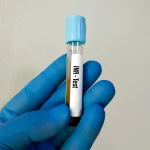What is informed consent?
Consent is your agreement for a healthcare professional to provide you with medical treatment and care. This includes any tests, medicines, treatments or procedures you agree to.
To give informed consent, you need to be given enough information about your options to make decisions about your health and healthcare.
Which medical procedures need informed consent?
Your doctor or healthcare professional needs your consent for any medical treatment they give you.
This includes:
- physical checks
- medical treatments
- medical tests
- medical procedures
What are the legal requirements for informed consent?
To give informed consent in Australia, you must:
- have legal capacity to consent
- give your consent voluntary (no one can force you)
- be given enough information about your condition and your options, including the benefits, risks of each choice — you must also have the opportunity to ask questions
What is legal capacity?
Legal capacity means that you can:
- understand and retain all the facts involved in your situation
- understand your treatment options
- understand the potential consequences of each option
- weigh up the potential benefits, disadvantages and consequences of each option
- communicate your decision to your doctor
Adults aged 18 years or older are generally assumed to have legal capacity to give consent for medical procedures or treatments. Sometimes, mental illnesses or disabilities can affect an adult’s legal capacity.
In general, if a person is under the age of 18 years, their parent or guardian gives consent on their behalf. However, there are some cases where young people under the age of 18 can give consent. Ask your doctor about your own circumstance.
If someone doesn’t have legal capacity, there is a legal framework that helps determine who can give consent on that person’s behalf (a substitute decision-maker). Examples of situations include if the person is unconscious, or has a developmental or mental illness. This framework may be different in each state and territory. A substitute decision-maker makes decisions in the person’s best interest.
What should be explained to me before I consent?
Before you give your consent, make sure:
- your doctor or healthcare professional has explained each of the choices available to you
- that any risks, and the likelihood of those risks, are explained
- you understand the benefits
- you understand the purpose of the action you are consenting to
If you are not sure at any stage, be sure to ask your doctor.
Informed consent might look different for different people. Before you give informed consent, you may need help from:
- an interpreter if English is not your first language
- a friend, family member, or support person to discuss options with
How do I give informed consent?
You can give informed consent verbally or in writing. It can also be implied.
The type of consent you give will depend on the examination, treatment or procedure you are consenting to. For example, by allowing your doctor to examine you, you imply consent to the physical examination. For more complex procedures or treatments, such as surgery, your health professional may ask you to provide consent in writing.
Can I change my mind?
Yes. In most cases, you can change your mind even if you have already given consent. Make sure you tell your doctor or healthcare professional clearly if you change your mind.



